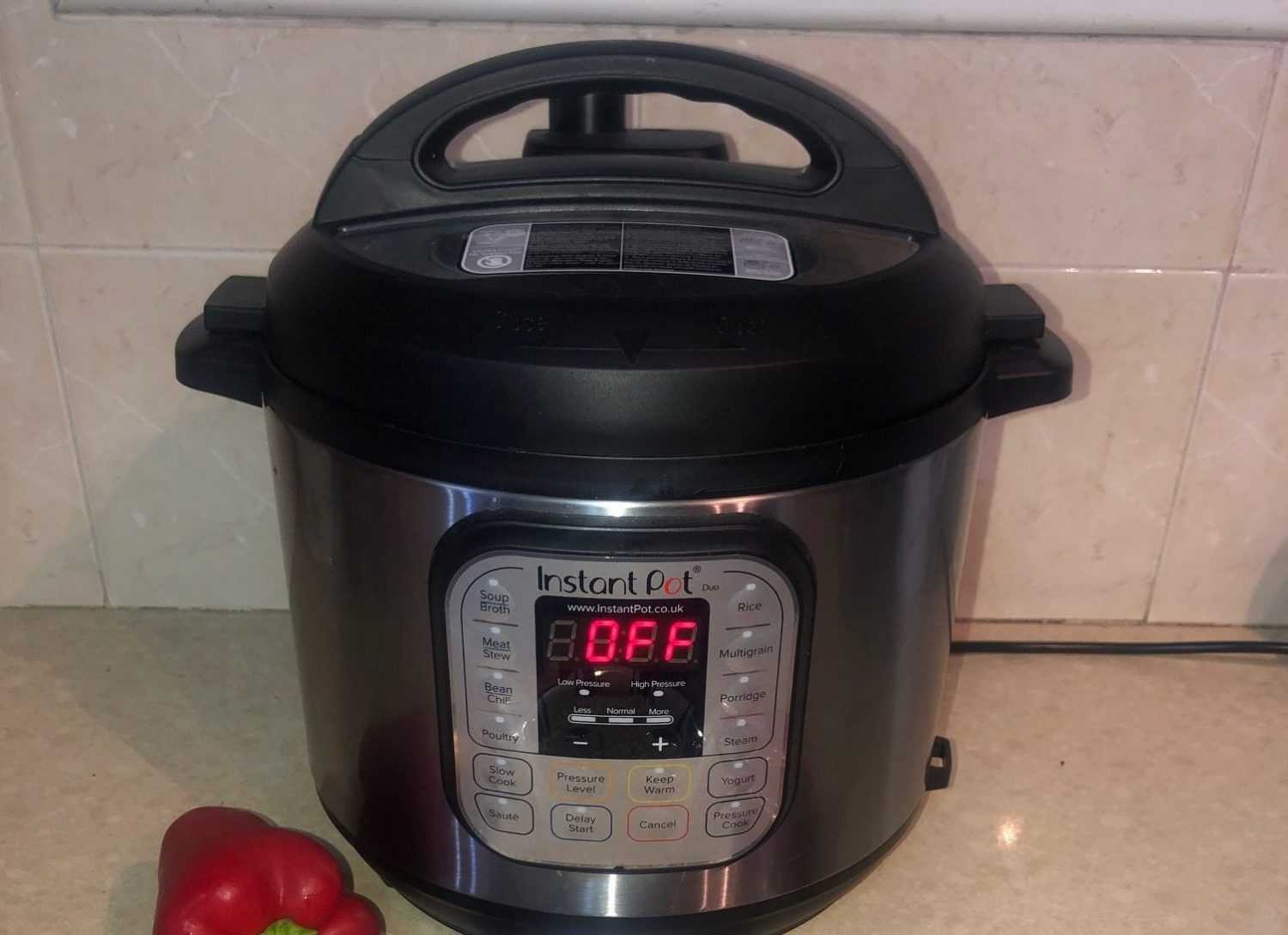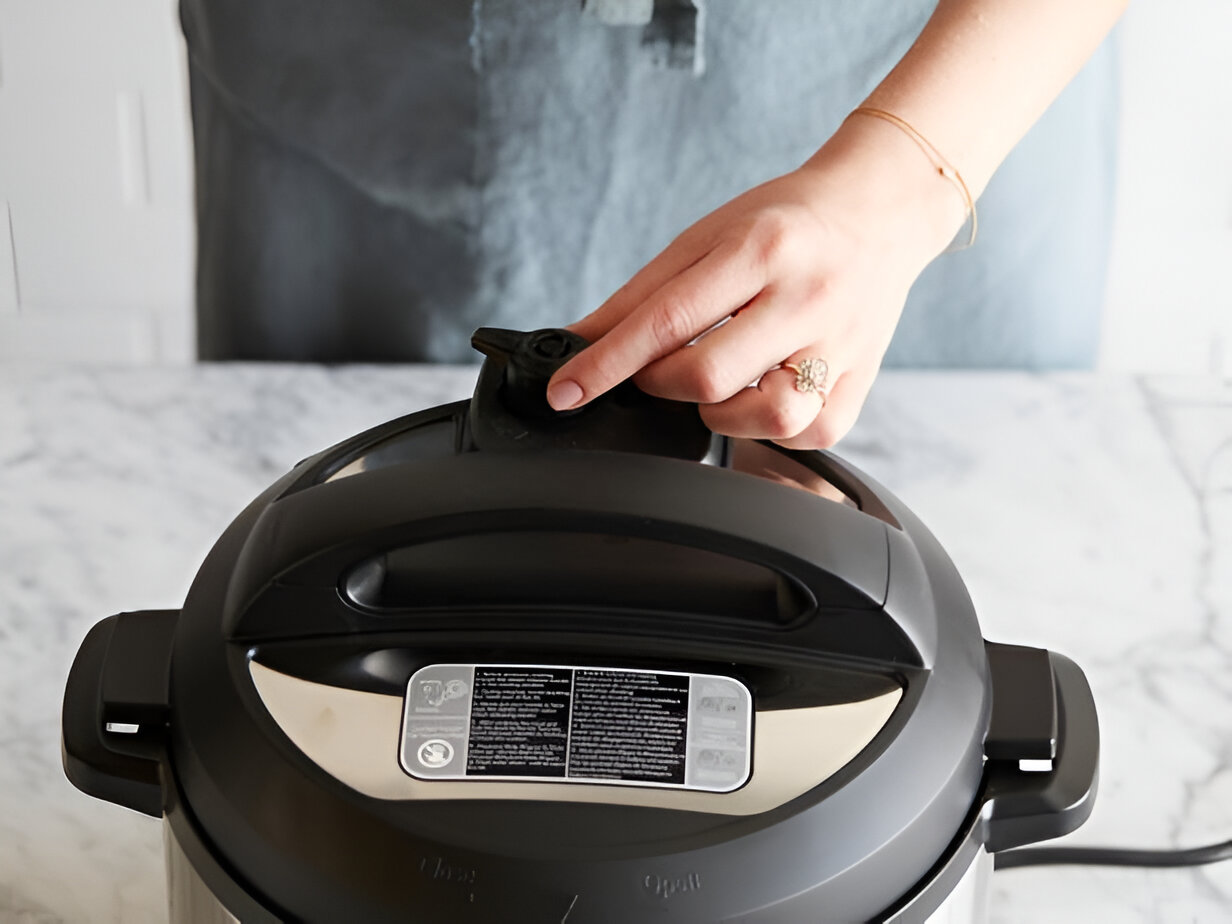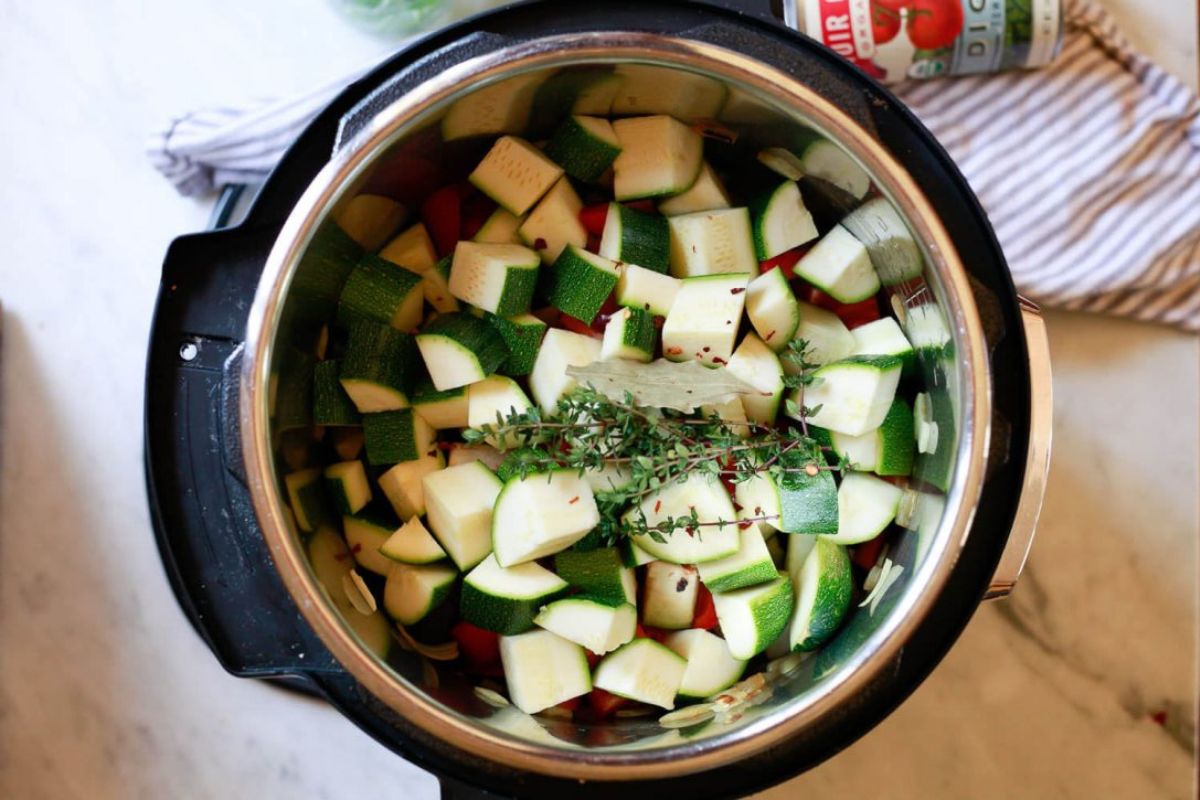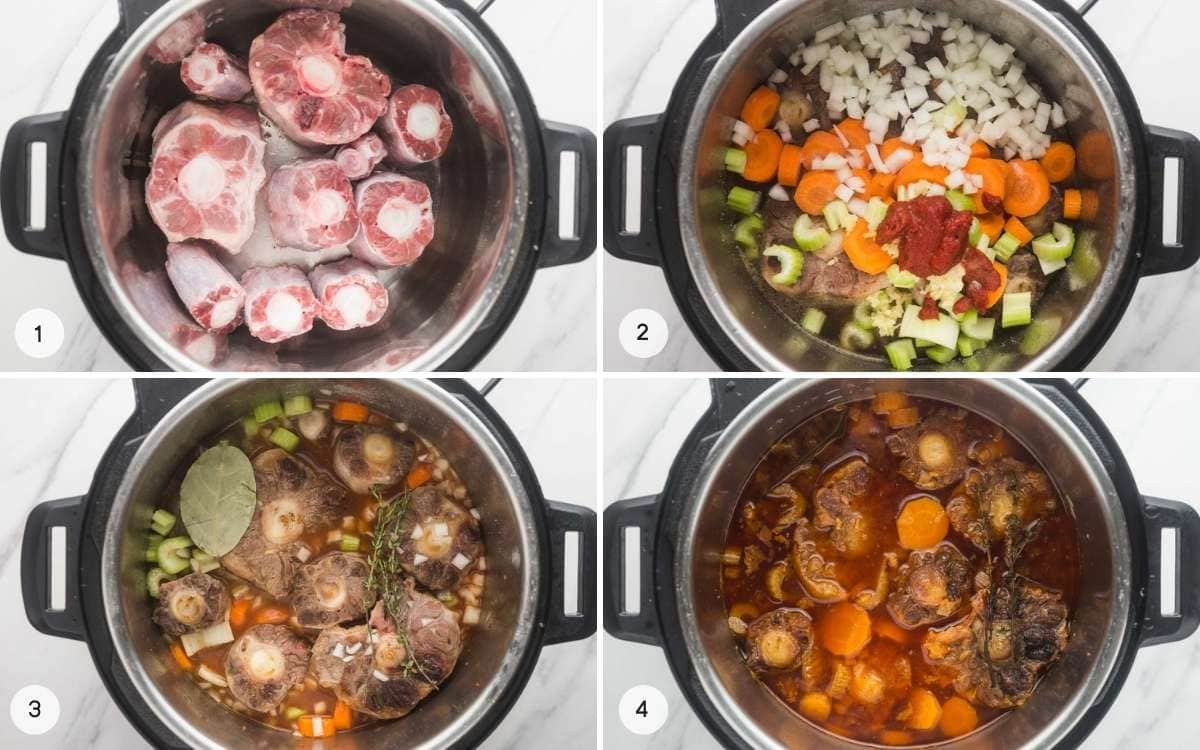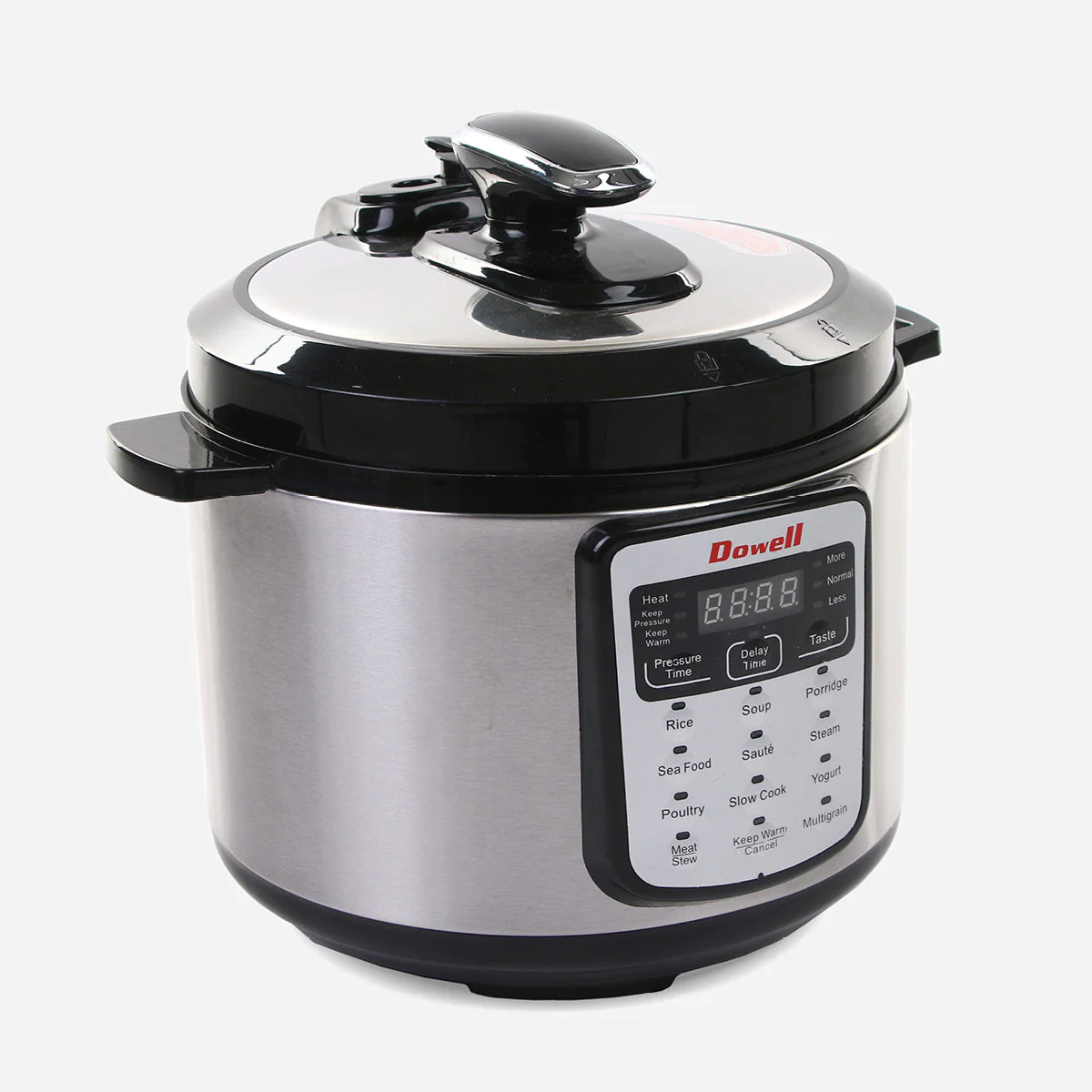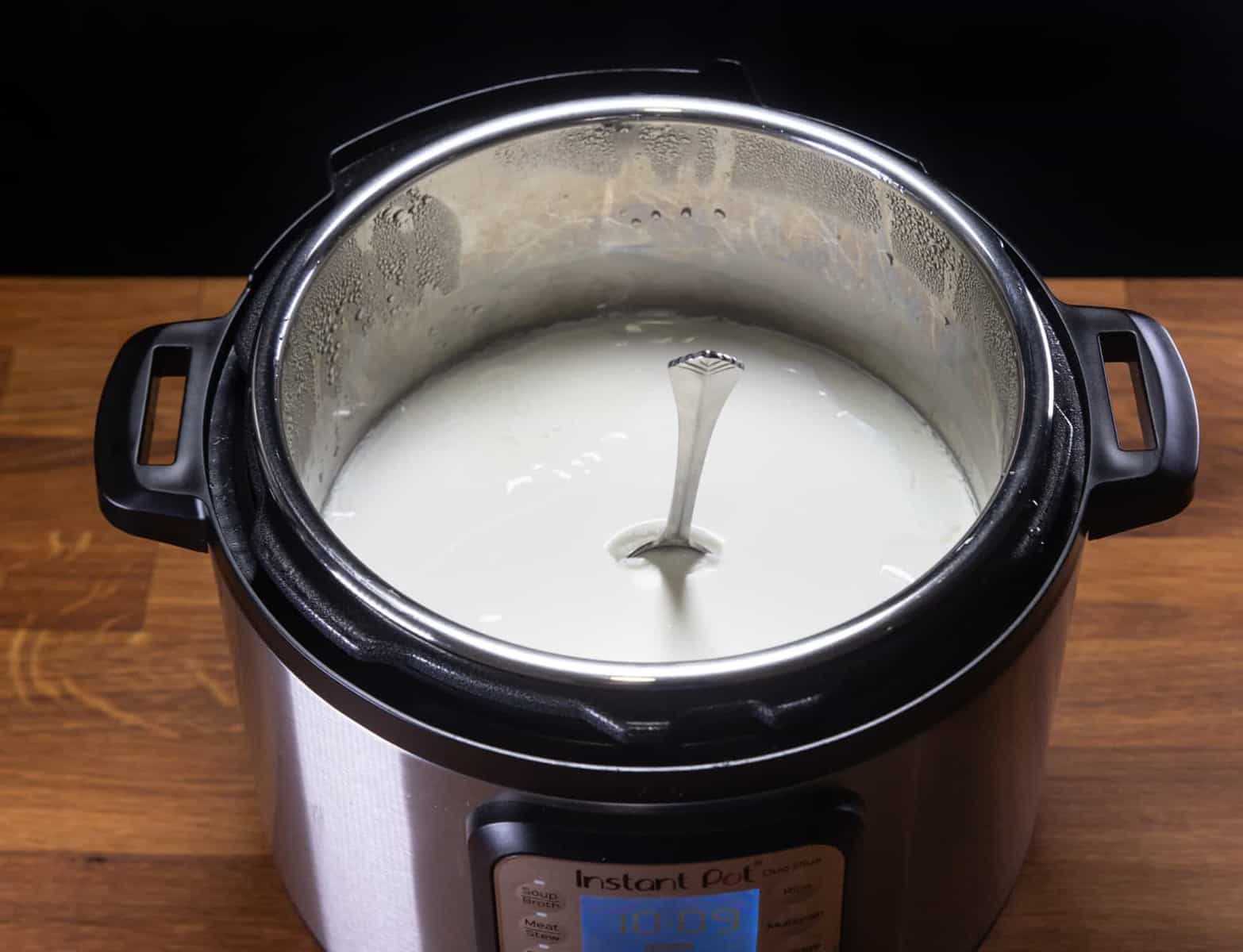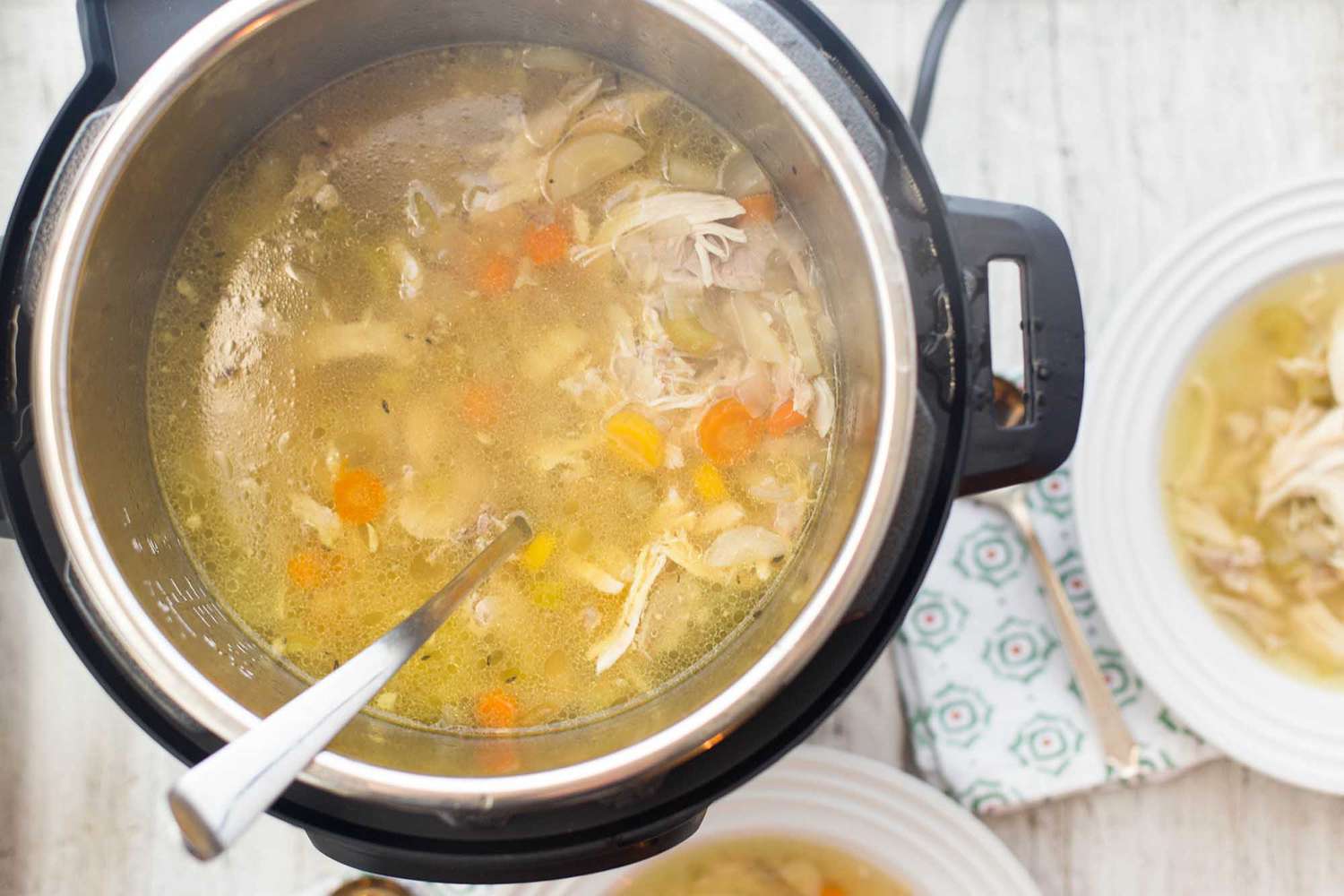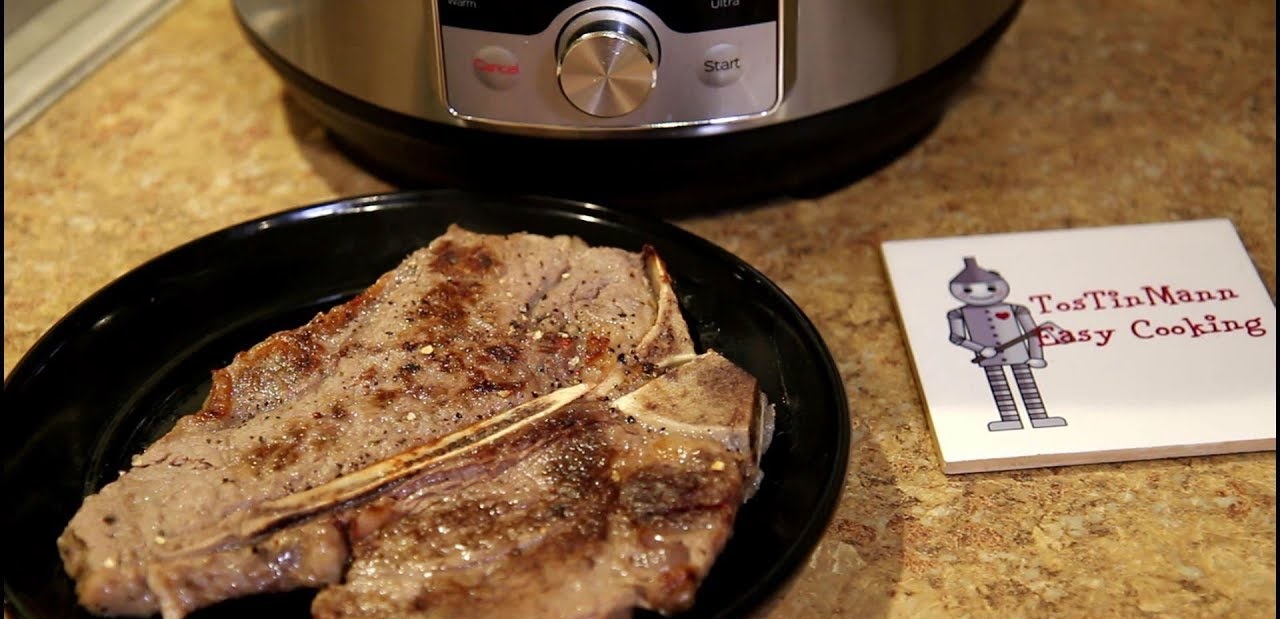Introduction
Welcome to the world of electric pressure cookers, where making meals is quick, convenient, and hassle-free. These modern kitchen appliances have gained immense popularity in recent years, as they offer a range of benefits such as fast cooking times, energy efficiency, and the ability to retain the natural flavors and nutrients of your favorite dishes. However, like any electronic device, electric pressure cookers may encounter certain issues that can leave you puzzled and frustrated.
One common problem you may face with your electric pressure cooker is it unexpectedly turning off during the cooking process. This can be frustrating, especially when you’re in the middle of preparing a delicious meal for your family or guests. So, why does your electric pressure cooker keep turning off? In this article, we will explore several possible reasons behind this issue and provide solutions to help you resolve it.
From over-heating and low liquid levels to faulty power sources and incorrect pressure settings, there are various factors that can cause your electric pressure cooker to shut off abruptly. By understanding these reasons, you’ll be better equipped to troubleshoot and fix the problem, ensuring that your electric pressure cooker runs smoothly and efficiently.
Throughout this article, we’ll discuss each possible cause in detail, offering insights into how they can affect the functioning of your electric pressure cooker. We’ll also provide practical tips and solutions to help you overcome these issues, so you can confidently cook with your electric pressure cooker without the fear of it unexpectedly shutting off.
Now, let’s dive into the details and uncover the reasons why your electric pressure cooker keeps turning off, so you can get back to enjoying delicious, homemade meals in no time.
Overheating
One of the common reasons why your electric pressure cooker might keep turning off is overheating. Electric pressure cookers are designed to reach high temperatures in order to cook food quickly, but they also have built-in safety mechanisms to prevent them from overheating.
When the temperature inside the pressure cooker exceeds the safety limit, it will automatically shut off to prevent any potential damage or accidents. There are a few factors that can contribute to overheating:
- Insufficient liquid: In order for the pressure cooker to generate steam and build up pressure, it needs enough liquid. If you’re cooking a recipe that requires a specific amount of liquid and you don’t meet that requirement, the pressure cooker might overheat and shut off.
- Blocked steam release valve: The steam release valve is an important component that allows excess steam to escape during cooking. If the valve is blocked or not functioning properly, the pressure inside the cooker can increase rapidly, causing it to overheat and shut off.
- Overfilled cooker: If you fill your pressure cooker beyond its maximum capacity, it can hinder the proper circulation of heat and steam, leading to overheating.
- Malfunctioning temperature sensor: Occasionally, the temperature sensor in the pressure cooker can malfunction and incorrectly sense the temperature, causing the cooker to shut off unexpectedly.
To prevent overheating and ensure that your electric pressure cooker operates smoothly, make sure you follow the manufacturer’s guidelines for liquid levels, avoid overfilling the cooker, and regularly clean and maintain the steam release valve. If you suspect a malfunctioning temperature sensor, it may be necessary to contact the manufacturer for further assistance or to have it repaired or replaced.
By being mindful of these potential causes of overheating, you can minimize the chances of your electric pressure cooker shutting off during the cooking process, allowing you to enjoy your meals without any interruptions.
Low Liquid Levels
Another common reason why your electric pressure cooker may keep turning off is if there are low liquid levels inside the cooking pot. Electric pressure cookers require a certain amount of liquid to generate steam and build pressure, which is essential for the cooking process to take place.
When the liquid levels in the pressure cooker are too low, it can cause the pressure cooker to overheat and trigger the safety mechanism, resulting in it turning off. Here are a few factors that can contribute to low liquid levels:
- Inadequate measurement: It is important to adhere to the recommended liquid measurements provided in the recipe or the instructions for your specific electric pressure cooker model. Failing to add enough liquid can lead to low liquid levels and cause the pressure cooker to shut off.
- Evaporation: The cooking time in an electric pressure cooker is typically shorter than traditional cooking methods. As a result, there is less time for the liquid to evaporate naturally. However, if the cooking process is prolonged or if the pressure release valve is not properly sealed, excessive evaporation may occur, resulting in low liquid levels and the pressure cooker shutting off.
To prevent low liquid levels and subsequent shutdowns, ensure that you carefully measure the required amount of liquid and add it to the pressure cooker before starting the cooking process. Additionally, make sure the pressure release valve is properly sealed to prevent excessive evaporation. By following these steps, you can maintain adequate liquid levels in your electric pressure cooker, ensuring uninterrupted cooking and delicious results.
In case you find that the liquid levels are consistently low even after taking these precautions, it is possible that there is a malfunction in the pressure cooker’s sensor or sealing mechanisms. In such cases, it is recommended to contact the manufacturer or seek professional assistance to diagnose and rectify the issue.
Faulty Power Source
If your electric pressure cooker keeps turning off unexpectedly, there’s a possibility that the issue may lie with the power source rather than the cooker itself. A faulty power source can disrupt the functioning of the pressure cooker and cause it to shut off. Here are a few factors to consider:
- Power fluctuations: Fluctuations in your home’s electrical supply can have an impact on the performance of your electric pressure cooker. If the power supply is inconsistent or experiencing voltage spikes, it can cause the cooker to shut off as a protective measure. Consider using a surge protector or voltage stabilizer to regulate the power supply and prevent sudden shutdowns.
- Faulty electrical outlet: It is possible that the electrical outlet to which your pressure cooker is connected is faulty. Test the outlet by plugging in another appliance to see if it functions properly. If not, you may need to call an electrician to investigate and fix the issue.
- Loose connections: Ensure that the power cord of your electric pressure cooker is securely plugged into both the cooker and the electrical outlet. Loose connections can result in intermittent power supply, causing the cooker to shut off unexpectedly. Double-check the connections and make sure they are snug and secure.
If you have ruled out any issues with the power source, and your electric pressure cooker continues to turn off, it is recommended to contact the manufacturer or seek professional assistance. They can help diagnose any underlying electrical issues with the cooker itself so that you can safely resume your cooking tasks without interruptions.
Remember to prioritize safety and avoid using your electric pressure cooker if you suspect any problems with the power source. It’s always better to be cautious and take the necessary steps to ensure a stable power supply before using your pressure cooker.
Incorrect Pressure Settings
One possible reason why your electric pressure cooker keeps turning off is due to incorrect pressure settings. Electric pressure cookers have different pressure settings that allow you to customize the cooking process based on the recipe requirements. If the pressure settings are not set correctly, it can interfere with the cooking process and cause the cooker to shut off unexpectedly.
Here are a few factors to consider regarding incorrect pressure settings:
- Failure to select the appropriate pressure level: Most electric pressure cookers have multiple pressure levels, such as low pressure and high pressure. Each level is suitable for specific types of dishes. If you select the wrong pressure level for your recipe, it can lead to cooking issues and the pressure cooker turning off. Refer to the recipe instructions or the pressure cooker’s user manual to determine the correct pressure setting for your dish.
- Failure to set the timer correctly: Electric pressure cookers often come with a timer function that allows you to set the desired cooking time. If you input an incorrect cooking time or forget to set the timer altogether, it may result in the pressure cooker shutting off prematurely. Double-check the timer settings before starting the cooking process to ensure accurate timing.
- Pressure release valve in the wrong position: The pressure release valve of an electric pressure cooker has two positions—sealing and venting. It is crucial to ensure that the valve is set to the sealing position during cooking. If the valve is in the venting position or not properly sealed, it can cause pressure loss, leading to the pressure cooker turning off prematurely.
To avoid issues with incorrect pressure settings, take the time to read the recipe instructions carefully and familiarize yourself with the pressure cooker’s settings and functions. Make sure you select the appropriate pressure level, set the timer correctly, and position the pressure release valve properly.
If you’ve followed these steps and your electric pressure cooker continues to turn off unexpectedly, it is recommended to consult the pressure cooker’s user manual or contact the manufacturer for further guidance. They can provide specific troubleshooting steps or recommend any necessary repairs to resolve the pressure settings issue.
Warped or Damaged Gasket
A warped or damaged gasket can be another culprit behind your electric pressure cooker repeatedly turning off. The gasket, also known as the sealing ring, is a vital component that ensures a tight seal between the lid and the cooking pot, allowing pressure to build inside the cooker.
If the gasket is warped or damaged, it may not create a proper seal, resulting in pressure leaks and the pressure cooker shutting off unexpectedly. Here are a few factors to consider regarding a warped or damaged gasket:
- Aging or wear and tear: Over time, the gasket may deteriorate due to regular use, exposure to heat, or cleaning agents. This can cause it to lose its shape or develop cracks, impairing its ability to create an airtight seal.
- Incorrect placement or installation: If the gasket is not properly placed or installed in its designated groove, it can result in an inadequate seal, leading to pressure loss and the pressure cooker shutting off. Ensure that the gasket is correctly positioned and securely fitted before each use.
- Physical damage: Accidental mishandling or dropping of the pressure cooker lid can cause damage to the gasket. Even a small dent or tear can affect its performance, resulting in pressure leaks and the cooker turning off.
To determine if the gasket is the cause of the shutdowns, carefully inspect it for any signs of damage, such as cracks, tears, or warping. If you notice any issues, consider replacing the gasket with a new one that is compatible with your electric pressure cooker model.
Regularly cleaning and maintaining the gasket can also help prolong its lifespan and ensure its proper functioning. Follow the manufacturer’s instructions for cleaning and storing the gasket, as improper care can contribute to its deterioration.
If you have replaced the gasket, ensured its proper placement, and the pressure cooker still shuts off unexpectedly, it is recommended to contact the manufacturer or seek professional assistance. They can examine the pressure cooker for any other underlying issues and provide further guidance or repairs if necessary.
Faulty Lid Sensor
A faulty lid sensor is another potential reason why your electric pressure cooker keeps turning off unexpectedly. The lid sensor is a safety feature that ensures the pressure cooker can only operate when the lid is properly secured. If the lid sensor is malfunctioning, it may mistakenly detect an open or improperly sealed lid, causing the cooker to shut off.
Here are a few factors to consider regarding a faulty lid sensor:
- Debris or residue: The lid sensor may not function correctly if there is food debris, liquid, or residue on the lid or the sensor itself. Make sure the lid and the sensor are clean and free from any obstructions before each use. Use a damp cloth or sponge to gently clean the lid and sensor.
- Misalignment or damage: If the lid or the lid sensor is misaligned or damaged, it can interfere with the proper functioning of the lid sensor. Check to see if the lid is correctly aligned with the pressure cooker base and that there are no visible signs of damage to the lid or the sensor.
- Worn-out or loose lid hinge: If the lid hinge is worn out or loose, it may not press the lid firmly against the sensor, causing the lid sensor to malfunction. Inspect the lid hinge for any signs of wear or looseness, and if necessary, consider replacing it or contacting the manufacturer for further assistance.
If you suspect a faulty lid sensor, try securely closing and locking the lid multiple times to ensure a proper connection with the sensor. If the pressure cooker continues to shut off unexpectedly, even with a properly secured lid, it is recommended to reach out to the manufacturer or seek professional help to diagnose and repair the faulty lid sensor.
Remember to prioritize safety and refrain from using the electric pressure cooker if you suspect any issues with the lid sensor. Faulty sensors can compromise the integrity of the pressure cooker’s safety features and increase the risk of accidents. Contacting the manufacturer or a professional will ensure that the lid sensor is functioning properly, allowing you to use your pressure cooker safely and without interruptions.
Food Debris on the Heating Element
If your electric pressure cooker keeps turning off unexpectedly, one possible cause could be the presence of food debris on the heating element. The heating element is responsible for generating the heat necessary for cooking food in the pressure cooker. When food debris, such as oil, sauces, or other ingredients, accumulates on the heating element, it can disrupt the normal functioning and cause the cooker to shut off.
Here are a few factors to consider regarding food debris on the heating element:
- Accumulation over time: During the cooking process, food particles can splatter or drip onto the heating element. If these debris are not promptly cleaned, they can build up and create a barrier between the heating element and the cooking pot, leading to uneven heat distribution and potential overheating.
- Interference with the temperature sensor: Food debris on the heating element might interfere with the accuracy of the temperature sensor, causing it to provide incorrect readings. This can result in the pressure cooker shutting off prematurely or struggling to maintain the desired temperature.
To address the issue of food debris on the heating element, it is important to practice regular cleaning and maintenance of your electric pressure cooker. Follow these steps to keep the heating element free from debris:
- Allow the pressure cooker to cool down completely before cleaning.
- Gently wipe the heating element with a soft cloth or sponge dampened with warm soapy water. Take care not to apply excessive force or use abrasive materials that could damage the heating element.
- If stubborn debris is present, you may use a non-abrasive scrub brush or a soft brush to remove it gently.
- Rinse the heating element with clean water and pat it dry.
- Inspect the heating element for any residue or remaining debris. If necessary, repeat the cleaning process until the element is completely clean.
By regularly cleaning the heating element, you can ensure smooth and efficient operation of your electric pressure cooker, reducing the likelihood of unexpected shutdowns due to food debris. Additionally, keeping the heating element clean will help to maintain its longevity and optimize its performance.
If you have cleaned the heating element thoroughly, and your electric pressure cooker continues to shut off unexpectedly, it may be indicative of an issue beyond food debris. In such cases, it is advisable to contact the manufacturer or seek professional assistance to diagnose and address any underlying problems with the cooker.
Safety Features Activated
If your electric pressure cooker is consistently turning off during operation, it is essential to consider the possibility that the safety features of the appliance are being activated. Electric pressure cookers are equipped with various safety mechanisms to protect users from potential accidents or hazards.
Here are a few factors to consider regarding activated safety features:
- Excessive pressure: Pressure cookers are designed to build up pressure internally to cook food quickly. However, if the pressure inside the cooker becomes too high, the safety features will activate, causing the cooker to shut off. This can occur due to overfilling the cooker with food or liquid, or a malfunction in the pressure release valve.
- High-temperature limit: Electric pressure cookers have a maximum temperature limit to prevent overheating and potential damage. If the temperature inside the cooker exceeds this limit, the safety features will automatically activate, leading to a shutdown.
- Lid detection: Most electric pressure cookers are designed to operate only when the lid is properly secured. If the lid is not correctly placed or sealed, or if the lid sensor detects any issue with the lid closure, the safety features will trigger a shut off.
When the safety features are activated and the pressure cooker turns off, it is important to identify the underlying cause. Follow these steps to address safety feature activation:
- Release the pressure by turning the pressure release valve according to the manufacturer’s instructions.
- Check for any potential issues that may have caused the excessive pressure or high temperature, such as overfilling or a malfunctioning pressure release valve.
- Ensure that the lid is properly secured and sealed before restarting the pressure cooker. Take care to align the lid correctly with the cooker and ensure there are no obstructions that may interfere with the lid detection mechanism.
It is important to note that safety features are in place to protect users and avoid accidents. If your electric pressure cooker continues to shut off due to activated safety features despite taking the necessary precautions, it may indicate a problem with the cooker itself. In such cases, it is recommended to contact the manufacturer or seek professional assistance to diagnose and resolve the issue with the safety features.
Remember to always prioritize safety when using your electric pressure cooker and follow the manufacturer’s instructions for proper operation and maintenance. This will help ensure the longevity and safe use of your appliance.
Conclusion
If your electric pressure cooker keeps turning off unexpectedly, it can be frustrating and disrupt your cooking process. However, by understanding the potential reasons behind this issue, you can troubleshoot and resolve the problem more effectively.
Issues such as overheating, low liquid levels, faulty power sources, incorrect pressure settings, warped or damaged gaskets, faulty lid sensors, food debris on the heating element, and activated safety features can all contribute to the shutdowns. By addressing these factors, you can minimize the chances of your electric pressure cooker turning off during cooking.
Remember to follow the manufacturer’s guidelines for liquid levels, pressure settings, and proper maintenance of your pressure cooker. Regularly clean the pressure cooker, including the gasket and heating element, to prevent debris buildup that could hinder performance. Ensure that the lid is properly secured and aligned, and be mindful of any issues with the power source or safety features.
If you’ve tried troubleshooting the potential causes and the problem persists, don’t hesitate to contact the manufacturer or seek professional assistance. They can provide further guidance, diagnose any underlying issues, and recommend necessary repairs or replacement parts.
With proper care, maintenance, and troubleshooting, you can enjoy hassle-free cooking experiences with your electric pressure cooker, allowing you to create delicious meals for yourself, your family, and your guests.







